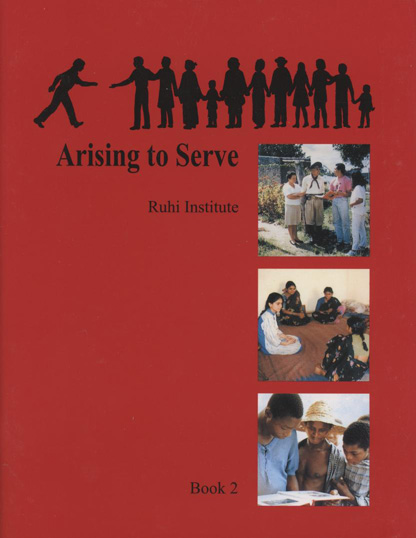The views expressed in our content reflect individual perspectives and do not represent the authoritative views of the Baha'i Faith.
Two calls to success and prosperity are being raised from the heights of the happiness of mankind. . . . The one is the call of civilization, of the progress of the material world. . . . The other is the soul-stirring call of God, Whose spiritual teachings are safeguards of the everlasting glory, the eternal happiness and illumination of the world of humanity, and cause attributes of mercy to be revealed in the human world and the life beyond. . . .
–Abdu’l-Baha, Selections From the Writings of Abdu’l-Baha, p. 283.
The purpose of life is to fulfill a purpose.
“Purpose” means a noble aim or lofty ideal, coupled with a plan of action. This does not come easily.
Each of us has an animal ego and a higher self. That much is basic to the spirituality of most world religions. Two horns, two wings. The horns can pry. The wings can fly.
The trick is to coordinate the horns and wings. In other words, to make the satanic angelic. This is the true alchemy, turning the crass copper of animal passion into the refined gold of compassion for others.
Here, by “gold” I mean a “heart of gold.” This is the gold standard for healing society of its social ills, whether the collective disease be gender inequality, economic disparity, racial prejudice, or civil strife, etc., on a pandemic scale. Hearts of gold are often materially poor, but spiritually rich.
The animal self is a source of passion and power, which can, in turn, inspire the “altruistic emotions:”
This second call is founded upon the instructions and exhortations of the Lord and the admonitions and altruistic emotions belonging to the realm of morality which, like unto a brilliant light, brighten and illumine the lamp of the realities of mankind. Its penetrative power is the Word of God. – Selections from the Writings of Abdu’l-Baha, p. 283.
Selfish emotions come easily. They arise naturally, spontaneously, urgently and often too suddenly and strongly for our own good—unless we pause to reflect, exercise tact and restraint, summon wisdom, then redirect our instinctual impulses into altruistic actions for the good of our self and others.
It’s okay to be cynical and to reduce the good done to others as a reflex of “enlightened self-interest.” That’s actually a good place to start.
No one becomes a saint overnight. In fact, relatively few people even desire to become saintly–the lower self doesn’t take to it naturally. But it’s quite natural for the higher self. (Speaking for myself, I’m no saint. But I try the best I can. I’m sure you do, too.)
Service to others is one way of characterizing what Baha’is try to do. In the previous article, “Circle the World with Study Circles,” we looked at one set of tools—called “Reflections on the Life of the Spirit”–in the Baha’i toolbox of practical ways to make this world a better place, and to improve our own lives in the process. Let’s now look at Tool #2: “Arising to Serve.”
“Arising to Serve” is Book 2 of the Ruhi Institute’s sequence of “study circle” Baha’i courses. In the preface to Book 2, this statement defines the overarching purpose of all the Ruhi study circles:
The basic concept underlying all the units of the Ruhi Institute, irrespective of the particular emphasis of each, is that of “walking a path of service.” Those who enter the program of the Institute set out on a path of personal spiritual growth and service to others. The various courses assist them by presenting to them the relevant concepts, by focusing them on the development of their own spiritual qualities and their attitudes, and by equipping them with the skills and abilities they need to trace their own path of service. This path necessarily begins with very simple acts of service, which then grow in complexity as the capacities of the participants increase.
These courses have no “hidden agenda.” What you see is what you get. Book 2 emphasizes socializing with and befriending your neighbors, and sharing the message of the Baha’i Faith with them. Baha’is don’t proselytize, or force their beliefs on others, but the Baha’i Faith does emphasize fellowship, friendliness and unity. Ideally, this is a sure-fire formula for consolidation and community-building.
The most tight-knit, unified communities are ones in which Baha’is and people of every other Faith are not only cordial to each other, but are actually friends with one another. The home visits the Book 2 encourages help cultivate friendships while, at the same time, fulfilling an educational function, by acquainting new Baha’is and interested seekers with basic information, understanding and appreciation for Baha’i values, morals, ideals, activities and goals.

















Comments
Sign in or create an account
Continue with Googleor